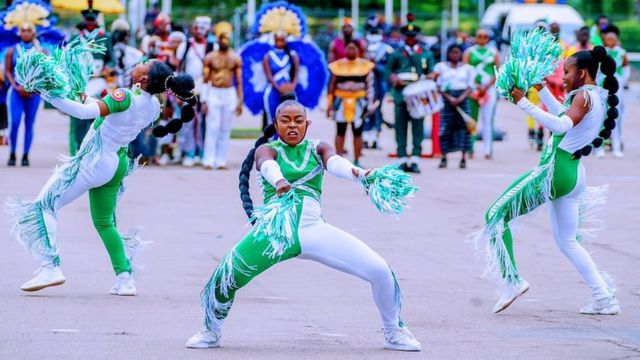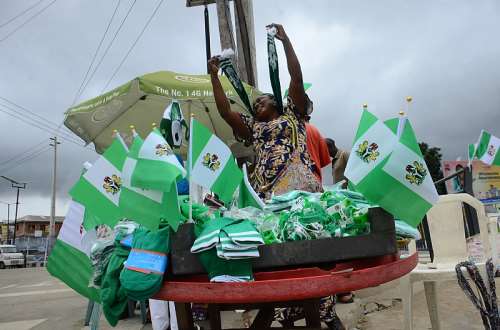The opinions presented in this piece are those of the author and do not necessarily represent InTv Media’s editorial position.Thank you.
AS Nigeria marks 62 years of independence, the country is still searching for the right answer to a nagging question.

How can the over 350 ethnic nationalities cohabit in peace and harmony that will lead to sustainable growth and development of the country?

In search of an answer to this recurring question, the world’s largest black nation has passed through many thorny paths in the last six decades with the roughest being the 1967-70 Nigeria-Biafra civil war that claimed no fewer than an estimated three million lives on both sides.
More than ever before, Nigerians are still divided on the way forward. The polity is awash with agitations and counter-agitations for restructuring, devolution of powers to the federating units, return to full-blown fiscal federalism as was observed in the First Republic (1960-1966), resource control, state police and self-determination by the Indigenous People of Biafra, IPOB, and Ilano Omo Odua/Yoruba One Voice, YOV among others. There is also religious fundamentalism in some parts of the North.
READ ALSO: 2022 Independence Day speech by President Buhari
These agitations have been further fuelled by raging ethnoreligious crises, insecurity, banditry, kidnapping, herdsmen/farmers clashes and kidnapping of priests and Christian leaders in some parts of the country.
Nigeria started on a promising note in 1960. Founded on a tripod, she had three strong regions, which competed healthily in terms of socio-economic development and emancipation of their citizens. The regions were Northern, Eastern and Western. The Northern region covered all parts of today’s 19 northern states and the Federal Capital Territory, Abuja.
The Eastern region had all the five states of the South-East geo-political zone, Cross River, Akwa Ibom, Rivers and Bayelsa states. The Western region covered six states of the South-West zone, parts of Lagos, Edo and Delta states.
In 1963, by plebiscite, a fourth region – Mid-West (covering today’s Edo and Delta states) was carved out of the Western region. Then, the nascent Nigerian nation was the envy of the world as the regions, rooted in fiscal federalism, tried to outdo one another in terms of the provision of world-class infrastructure and facilities.
The educational and research institutions, hospitals, roads, stadia and edifices such as the Cocoa House in Ibadan, and Western House, in Lagos, were top of the craft.
Tertiary institutions such as the University of Nigeria, Nsukka (1960); the University of Ibadan (established as a college of the University of London in 1948 but became full-fledged in 1962), Ahmadu Bello University (1962), and Obafemi Awolowo University (1962) among others attracted students from all over the world and were easily among the best in the globe then.
Today, these universities are still among the very best in Nigeria but their world ratings have gone down drastically. In the 60s, the University College Hospital, Ibadan, was a haven of medical tourism for foreign heads of government including the King of Saudi Arabia.
Now, 62 years down the line, the four regions have morphed into six geo-political zones, 36 states, a federal capital territory and 774 local councils. Fiscal federalism that drove the development and shape of relations between the regions (federating units) and the centre has been replaced with unitary federalism where the centre wields humongous powers and corners 52 per cent of revenue allocation.
Hitherto, the regions controlled their resources, contributing 50 per cent to the distributable pool at the centre, from which they also got a share. Distortion of the independence template, some observers argue, is one of the reasons the country is currently wriggling in a mire of an ethnoreligious, socio-political and economic cesspool.
Ahead of the 2023 general polls, the crevices on Nigeria’s wall of unity are being widened by the worsening North-South divide with ethnicity and religion panning out as decisive factors that may shape the outcome of the presidential election.
Asiwaju Bola Ahmed Tinubu of the All Progressives Congress, APC; Alhaji Atiku Abubakar of the Peoples Democratic Party, PDP; and Mr Peter Obi of the Labour Party LP, are the leading presidential candidates among a crowd of 18 flag bearers. While Tinubu is Yoruba from the old Western Region, Atiku is Fulani from the old Northern Region; and Obi is Igbo from the old Eastern Region.
Who among the candidates can best lead Nigeria in the onerous journey to recovery? Who among them can take the attendant tough decisions needed?
To halt the dangerous dimensions ethnoreligious, socio-political and economic affairs of the country are taking, there is a need to answer the national question. Can Nigeria return to the growth and development velocity it took off in 1960? Why did the regions excel? Can Nigeria return to the 1960-66 growth trajectories? Indeed, what is termed the national question differs from region to region and its understanding or otherwise is a manifestation of either the benefits or the frustration suffered, being suffered or to be suffered by whoever is engaging the issue on either side.
Clifford Ndujihe



















